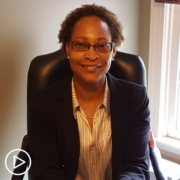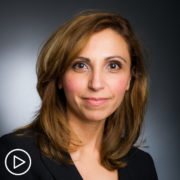How Can a Myeloma Patient Advocate/Financial Advisor Help?
How Can a Myeloma Patient Advocate/Financial Advisor Help? from Patient Empowerment Network on Vimeo.
Diahanna Vallentine has not only experienced life as a multiple myeloma caregiver and patient advocate but also as a financial advisor to patients. Watch as she shares things she’s learned talking with African American patients—and how she helps those in underrepresented communities with affordable access to myeloma treatment.
See More From the Diverse Partners in Your Myeloma Care Program
Transcript:
Rebecca Law:
Diahanna, we know many of the roadblocks to treatment boil down to access and the web of financial toxicity. In the work you do, how are you helping patients make informed decisions, and can you please provide some examples?
Diahanna Vallentine
I think one of the main variables that causes the disparity overall before even treatment is needed is a mistrust in the African American community as a result of past historical treatments, experiments that were done on the African Americans. And I find that talking to anyone. If I were to walk into any community, African American community, or underserved community, that is one of the first things. They’re going to be mistrustful of me. And it’s a very difficult barrier to overcome. And that also leads over into African Americans contributing, being donors, African Americans participating in trials. It all feeds over into everything that’s done in the African American community or underserved community in regards to healthcare.
Some of the things that I am doing is I try to be available to talk to anybody, no matter what time of day it is, talk to them where they’re wanting—where their needs are, listening to them and not making preconceived notions about who they are, where they come from, what their experiences are. And it’s an ongoing educational program for me, because we all come in—as difficult as we are, come in with preconceived notions of what our knowledge is, what our experience is, and how we’ve treated other people. And that has been one of the things that I have been practicing every day when I talk to patients, whether it’s in-person or on the phone. I have a unique perspective having been a financial advisor for more than 20 years, being a caregiver to a myeloma patient, being a patient advocate and not having the fear. I guess that’s something I grew up with. Not having the fear to talk to people or ask people questions, and let them know from the on-go that we all have something in common.
And once you establish that area of trust, then everything else comes easy. When you realize that that could be me in that bed, that could be my mother, my father in that bed, then we all become as one, per se. And so some of the things that I do is I talk to a person at the level they want to be spoken to. I ask them how they want me to communicate with them, how often they want me to communicate with them, is there anyone else they want to be involved in it. And then I take that information that they’re trying to gather and find resources for them so that financial toxicity will not become an issue, so that we can discuss with their caregivers what the treatment plan is, what the anticipated cost is, so that we can work around some of those financial barriers that they may come up against. And whether that’s looking at their current insurance plans, insurance plans they may have access to in the future, whether it’s through a spouse or their employers, or Medicare, Medicaid. We try to anticipate what those things are so that the financial toxicity does not become a burden, which again, affects their care, because stress affects your care and your outcomes.










